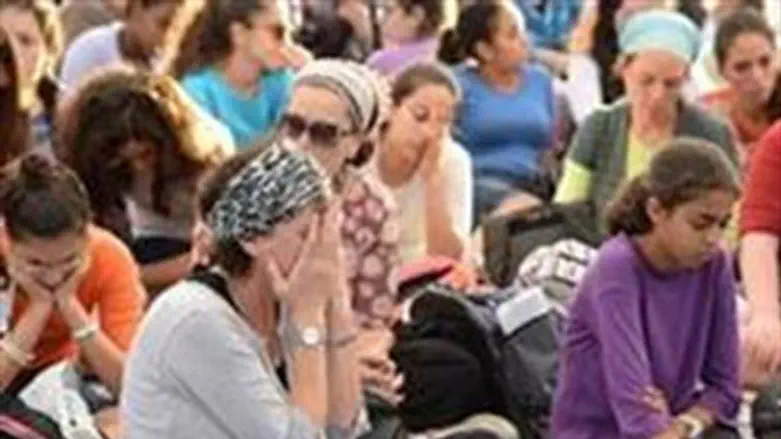
The Equal Employment Opportunities Commission (EEOC) works with different sectors of Israeli society to ensure their protection from abusive bosses or workplace discrimination. While a number of issues reared their ugly heads this past year in conjunction with the war - discrimination based on religiosity, race and the like - the main issue the EEOC faces is discrimination against women. This cuts across ethnic and racial lines. Different religious groups experience it differently, but the issue is still there.
This is not something unique to Israel. The majority of workplace complaints in countries that monitor them come from women. Israel is no exception to this. A major chunk of those complaints, perhaps the underlying reason women bear the brunt of workplace discrimination, have to do with pregnancy, fertility and infertility.
EEOC Commissioner Tziona Koenig-Yair says, however, that the commission is recording some significant improvements in attitude and behavior from Israeli employers.
“First and foremost the recent data shows improvement in the discourse. You see the questions prospective employers are asking are very different and even the questions that the employers themselves are asking the EEOC are different. How they are describing employment in general is very different.”
A recent report from the EEOC illustrates her point on complaints in the 2014 year:
“A more thorough examination of the women’s complaints shows that around half (47%) of them turned to the Commission due to pregnancy-related discrimination. If we add the rates of those complaining due to discrimination because of fertility treatments and parenthood, we reach a rate of 60% who complained on topics of discrimination connected with having and raising children.”
Employers prefer consistency, which far too many automatically assume cannot exist with a female employee who might go on maternity leave for months on end, or miss work due to difficulties with the pregnancy.
“A lot of times, employers don’t see a woman but someone who could ‘potentially get pregnant.’ Instead of a potential employee, they see all the potential pieces of fertility and infertility.”
Israeli culture, as well as Western culture in general, is in a different place than it was half a century ago. Women are clearly throughout the workforce. There are still some cultural peculiarities that have not changed however, according to Koenig-Yair. Despite the fact both members of so many couples work, it is still women who become the primary caregivers.
“I think it’s connected to a larger issue. Historically, women have been employed more and more in the last 50 years. Even as women have advanced higher and higher in the workforce, unfortunately things have not changed all that much in the home. Women still deal with most of the parenting duties,” she said.
Koenig-Yair does not think this means society is going backwards, only that certain issues have not been as effectively dealt with yet as more general problems such as women’s ability to advance on the job, moving up the ranks or not catching flak for building a family.
“I think the bigger issue is looking at how we can make sure shared parental responsibility will make things a bit better. It would impact things positively in the work force overall.”
If spouses came to balance the share of parenting responsibilities, perhaps more explicitly or in an organized way, “things working behind the scenes will start moving.”
Focusing more on where women are still lacking as an influence, specific industries are apparently more seldom to host female employees – much less managers – than others in Israel.
“Specifically, in the high tech industry, additional academic positions and senior managerial positions we see far fewer women,” says Koenig-Yair. Additionally, “40% of all women employed are in traditional women’s positions like nursing and secretarial jobs.”
A number of countries, including Israel, have made it illegal to refuse hiring someone on the basis that she is pregnant. She points out also that there are subtle differences in terms of the part of society women are coming from. For Arab women, even with an education, returning to communities where few women work as a matter of principle is the main obstacle.
“I would say for Arab women it is even more difficult than for Jewish women. It’s also a matter of education, as in where we see less education there is a problem. In the Arab sector particularly, it’s not necessarily that issue of education but once they settle in certain areas they have trouble finding places to work.”
Yet overall, the discourse is changing.
Koenig-Yair feels that many Israelis “realize the benefits in employing women and the economic benefit as well. We are starting to see more women in senior management positions.”
“Having said that, there are still many employers trying to get out of employing women entirely.”